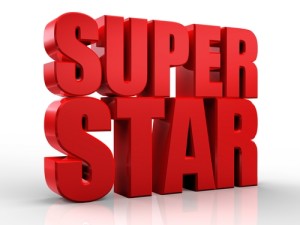This truth is a hard pill to swallow.
What’s the matter with you? You mean you’re not detail-oriented, an MBA, a people person with extraordinary EQ skills, and an expert in the subject area of your nonprofit?
Interesting, isn’t it? The culture inside many nonprofits is exactly what creates this fallacy.
It’s tolerated and accepted that the board and ED should be able to pull if off alone.
It’s ok that the program staff has nothing to do with the fundraising process. It’s not their job.
It’s ok that being afraid to ask for money is tolerated when it compromises the future of the organization.
And as a result, everyone carries on under the mistaken belief that grants, events that take way too much energy (that could be used for creating major gifts strategies), and direct mail will cut it.
That’s just the way it is, right? It’s embedded in the culture. Really though, it’s what keeps the sector stuck.
The irony is that many donors that make large gifts (whatever that means for them) love having the opportunity to contribute – beyond a gala ticket.
They yearn to feel the glory of coming together as equal partners to make something happen that wouldn’t be possible without them. It’s powerful stuff.
It’s what philanthropy is all about.
A paycheck made on the 15th means that XXX happens on the 16th. Pretty cool.
It’s not that simple of course, but you get the concept. That’s what’s important. You can’t change if you don’t get it.
And that requires self-awareness.
So what does this all have to do with not being good at everything?
As an executive director, I worked on the front lines for many years. I lived the fallacy and paid the price.
The cost was burn-out and not living up to my potential. The opposite of not being good at everything.
I hadn’t learned about capacity building and I certainly didn’t have the humility or experience to admit that I couldn’t do everything.
I wasn’t the super hero I thought I was.
Furthermore, I didn’t get the concept of how organizational culture could make or break a nonprofits ability to achieve big ideas – sustainably.
I thought I was pretty good, and I was. Got lots of praise from donors, staff and board members. And I knew how to present well.

But here’s the thing. I didn’t have the insight to see the root cause of the problem.
For me, learning this was when I shifted from not feeling good enough to engaging the community in a whole new way.
Here are some practical steps to use YOUR skills to bump your nonprofit to its next level of development (kind of a boring way of saying changing or saving more lives)
- Just get it! Recognize you can’t do it all – no one can.
- Do some reading and share it. Find cool, innovative articles from the Nonprofit Quarterly (here’s a great column by Simone Joyaux) or if you’re brave, the Stanford Social Innovation Review) that will shake up your thinking.
- Share it with the board chair. Figure out how to formulate the right questions. Begin having relevant conversations at board meetings and with staff.
- Grab an ED buddy that wants to learn and grow and have weekly coffee dates to talk about it. Just do it. Or go looking for someone at AFP lunches or workshops.
I promise, once you begin expressing these ideas with others – out loud – you’ll get your adrenaline flowing. You’ll begin to see your real potential.
It’s a fact: You can achieve even bigger ideas if you leverage your skills with the resources and skills of donors and others in the community.
Figure out your leadership gap.
What extraordinary skills and assets do you have right now? What and who do you need to take a step forward?


Leave A Response